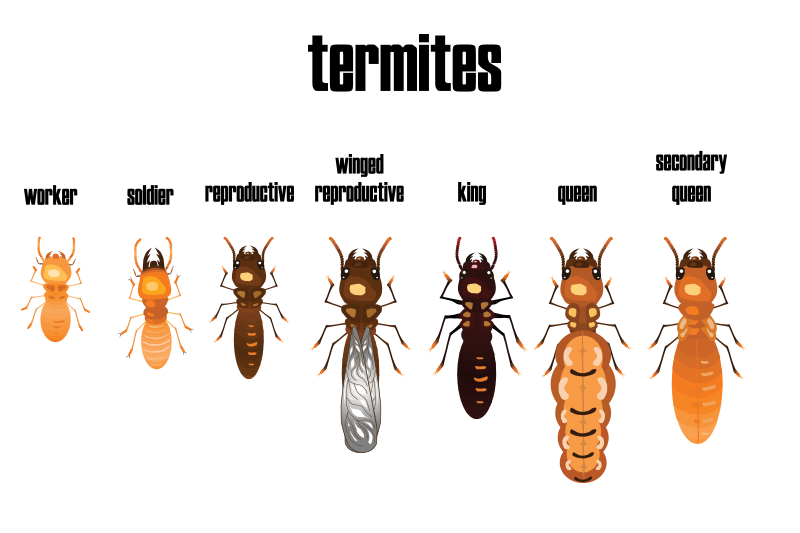Total Ant Control: Strategies and Services to Beat Ant Problems
Total Ant Control: Strategies and Services to Beat Ant Problems
Blog Article
Environmental Effect of Pest Control: Balancing Performance With Sustainability
The environmental effect of parasite control is a critical issue that calls for a delicate balance between accomplishing effectiveness in managing pests and making sure sustainability of our ecosystems. From the use of unsafe chemicals that leak right into our soil and water to the unexpected effects on non-target varieties, the repercussions of standard bug control methods are far-ranging.
Hazardous Chemicals in Parasite Control
The application of unsafe chemicals in parasite control presents considerable environmental and wellness threats that warrant mindful consideration and mitigation strategies. Chemicals, insecticides, and herbicides are typically utilized to eliminate insects, but their extensive application can bring about unintentional repercussions. These chemicals can contaminate dirt, water sources, and the air, influencing not just the targeted bugs but also helpful insects, wild animals, and human beings.
To address these risks, integrated parasite management (IPM) strategies are being advertised as a more sustainable option. IPM includes a mix of methods such as organic control, environment control, and the targeted use chemicals as a last option (ant control stephens nc). By embracing an alternative strategy to pest control, we can reduce the environmental and health impacts linked with dangerous chemicals while properly taking care of pest populations
Influence On Non-Target Species
Taking into consideration the unplanned consequences of bug control approaches, the effect on non-target types is an essential element that calls for complete assessment. While insect control actions intend to target details pests, various other organisms in the environment may be inadvertently affected. Non-target types, consisting of advantageous pests, birds, animals, and also plants, can endure straight or indirect damage from chemical applications or organic control methods.
Insecticides made to combat a particular bug pest might hurt pollinators like bees or natural predators such as ladybugs. Organic control representatives, if not species-specific, can position risks to unexpected targets, interrupting the eco-friendly equilibrium.
To minimize the influence on non-target species, incorporated insect administration (IPM) strategies that stress a holistic approach to pest control are suggested. These methods prioritize making use of eco-friendly methods, minimizing injury to valuable organisms while effectively handling pest populations. Conducting comprehensive threat assessments and checking the outcomes of pest control read this post here efforts are necessary actions in securing non-target types and promoting general environment health and wellness.
Soil and Water Contamination
Unintentional environmental repercussions of parasite control methods prolong past affecting non-target species, with significant effects for soil and water contamination - ant control services. Pesticides, herbicides, and chemical fertilizers used in pest control can leach into the dirt and infect groundwater, positioning a hazard to both terrestrial and aquatic communities.
Water contamination is an additional crucial concern linked with bug control techniques. To reduce soil and water contamination from insect control activities, integrated insect management strategies that prioritize sustainability and decrease chemical inputs are important.
Air Pollution From Pesticide Usage
Direct exposure to airborne pesticides during farming applications positions a significant worry for air pollution control steps. When pesticides are splashed onto crops, they can volatilize right into the air and kind unpredictable natural compounds (VOCs) and various other air-borne contaminants. These chemicals can contribute to the development of ground-level ozone, a major component of smoke that can have destructive effects on human health, plant efficiency, and total air top quality. Additionally, chemical drift, where chemicals are brought by the wind to unintentional areas, can lead to the contamination of nearby ecosystems and water bodies.
Techniques for Lasting Pest Control
In the world of agricultural practices, implementing lasting parasite control strategies is vital for maintaining environmental equilibrium and protecting crop returns. Sustainable bug control highlights using eco-friendly techniques to manage pest populations properly while lessening injury to non-target microorganisms and communities. Integrated Parasite Administration (IPM) is a widely adopted technique that combines organic, social, physical, and chemical control approaches to achieve long-term pest management remedies.
Plant turning and diversification are also efficient techniques to disrupt pest life cycles and create much less beneficial problems for bugs to grow. Ultimately, by incorporating these sustainable bug control approaches, farmers can attain a balance in between pest administration efficiency and environmental stewardship.
Conclusion
In verdict, the ecological influence of bug control methods need to be very carefully taken into consideration to balance effectiveness with sustainability. Damaging chemicals utilized in pest control can lead to dirt and water contamination, air contamination, and injury non-target species - ant control. It is essential to carry out lasting bug control methods to minimize these unfavorable results on the setting and promote a healthier community for future generations
By adopting a holistic approach to pest control, we can reduce the ecological and health impacts linked with damaging chemicals while effectively taking care of pest populations.

To reduce the air pollution caused by pesticide usage, it is essential to take on incorporated insect monitoring techniques that prioritize the use of non-chemical insect control techniques, such as crop rotation, natural killers, and resistant crop ranges. Sustainable pest control stresses the use of ecologically friendly techniques to take care of bug populaces properly while lessening injury to non-target microorganisms and ecosystems. Integrated Pest Administration (IPM) is a commonly adopted strategy that integrates biological, social, physical, and chemical control approaches to attain long-term pest monitoring services.
Report this page